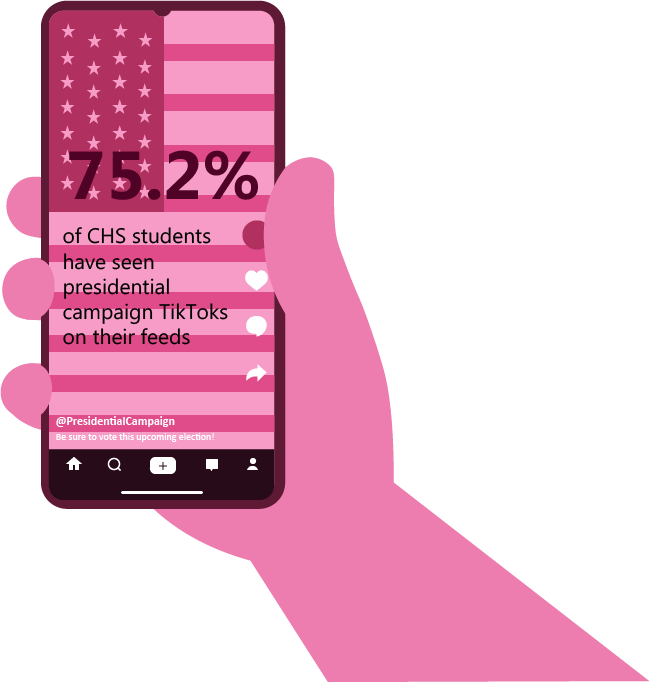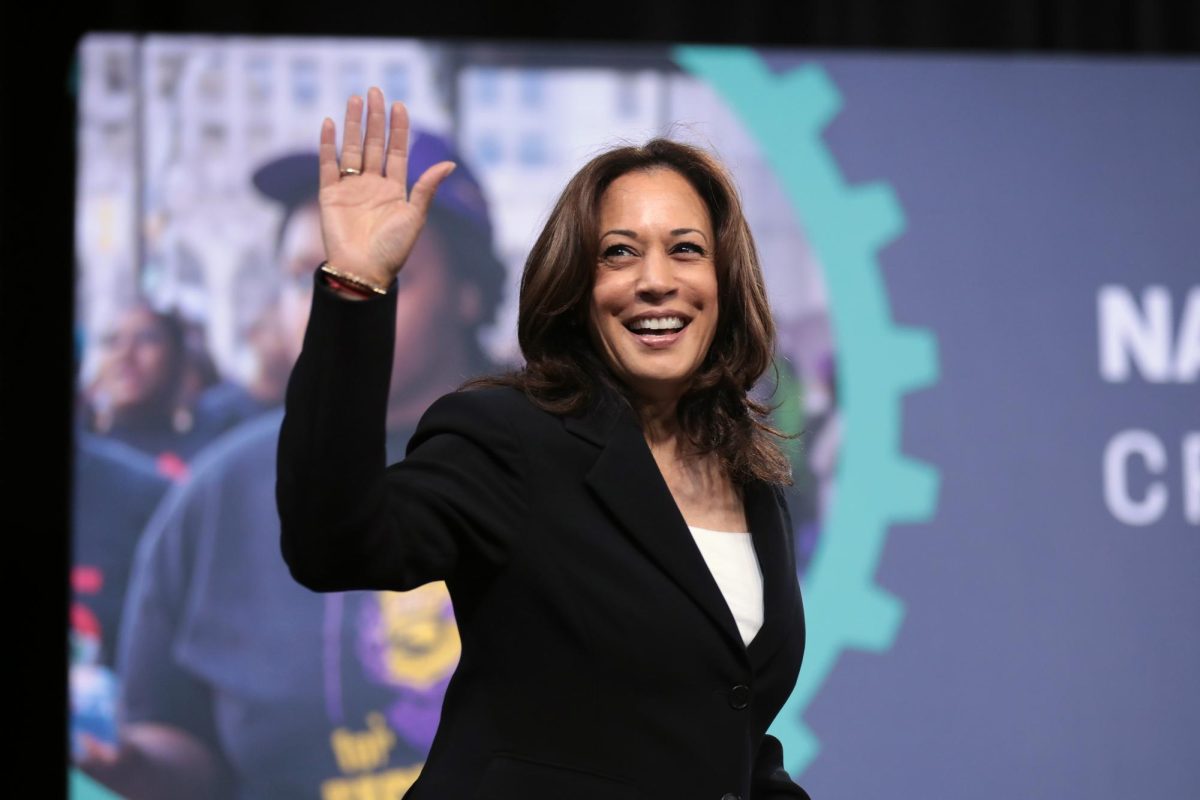While the nation prepared itself for the 2024 presidential election, platforms like TikTok, Instagram and Twitter saw a surge of discussion surrounding the candidates. Presidential candidate Kamala Harris’s administration quickly noticed and took advantage of this, choosing TikTok as a medium to cater to the younger generation of U.S. voters. Donald Trump’s team did the same.
The younger generation of voters typically tends to be more impressionable in their political standings. More than two-thirds of young voters admit to their votes being influenced by the political preferences of their parents, according to the Center for Information and Research on Civic Learning and Engagement. Studies by political scientist Dr. Boris Joonen have shown that children growing up with consistent political discussion, more so affiliated towards one party, are often externally influenced when casting their vote.
Though the perceptions of the youth may be easily swayed, their impact on election results is substantial. The Statist Research Department found that voters aged 18-24 make up a resounding 49.1% of all registered voters – and they have not hesitated to make their voices heard. Almost 70% of this demographic have named allocating resources for societal issues, including LGBTQ+ rights and movements for racial equality, a priority, as recorded by the United Way.
This being said, it’s no surprise that Harris’s team turned to the platform most effective in reaching young audiences to spread her messaging. From referencing Charli XCX’s album, “BRAT,” in Harris’s media presence to keeping up with the latest viral trends, the TikTok account Kamala HQ has effectively turned heads. Not only does such media resonate with first time voters, it helps encourage those who may otherwise be uninterested in voting to register and cast their ballot. However, some speculate that this form of online presence is counterproductive in the shaping of Harris’s overall character.
Junior Kamila Lopez of Long Branch commented on this, saying, “Now, Kamala seems so unserious, especially with the marketing her team is honing in; it made me think that she just isn’t a serious candidate to consider.”
Alongside promoting her campaign, Harris’s social media team pokes fun at some of the moves made by opponent Donald Trump, a strategy seen in elections dating back centuries. Trump responds to this campaign ploy by appealing to millennial voters.
Following Harris’s lead by building a social media presence to aid campaign efforts, Trump has decided to target what the Observatorio Politico Dos Estados Unidos reports as the 15% of the adult population that makes up his most loyal supporters: millennial voters. He has been consistent in using Instagram and TikTok to promote his public events and criticize democratic candidates. Following the Capitol riots in 2021, many of Trump’s social media accounts were quickly suspended, though they were reinstated on several platforms two years later.
Some speculate that Trump is losing a large number of potential female supporters by allocating most of his campaigning towards younger men through podcasts and promoting female stereotypes against Harris.
Amy Walter, Editor-in-Chief of the Cook Political Report, commented on this, saying, “If they don’t turn out and he’s alienated the people who are more consistent voters, then you’re really in a pickle.”
Others claim that TikTok is not a platform that should be linked to politics, and that as a result of its use, the election is becoming less serious than it should be.
Iona Literat, a TikTok Researcher at Columbia’s Teachers College stated, “Political expression should be serious and based on facts and rationality—when we look at TikTok political content, it looks almost the opposite of that.”
As upperclassmen at Communications High School (CHS) register to vote, many have their own opinions on such political strategies. Senior Brody Lippincott of Wall Township attested that though it’s an interesting strategy, “unrelated information and stories can be associated with a certain political standpoint.” On the other hand, junior Kirthna Todupunuri of Manalapan said that Harris’s account helped her understand more about her campaign.
Regardless of political affiliations, the use of social media remains a topic wide for discussion. As stated by junior Anna Gudelis of Holmdel, “I think [TikTok] is a good way to get a message out to a lot of people fast, but it can also be a problem when it comes to spreading misinformation.”









